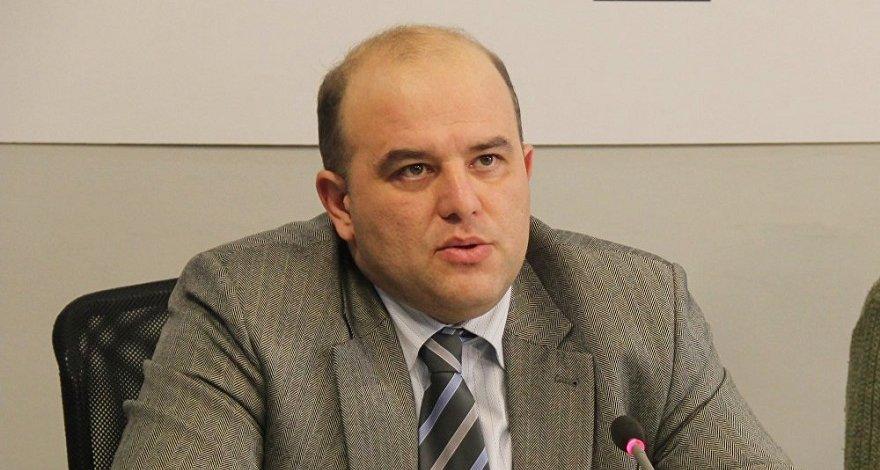Georgia has yet to focus on occupied Abkhazia Experts share views on recent illegitimate “election”
On February 15, illegal "presidential elections" were held in one of Georgia's two separatist regions, Abkhazia. The Georgian Ministry of Foreign Affairs condemned the holding of these so-called "presidential elections" in Russian-occupied Abkhazia, calling them a blatant violation of the country's sovereignty and territorial integrity.
"Against the backdrop of Russia's occupation of Georgia's sovereign territories and under conditions where internally displaced persons and refugees from the occupied territories have not been given the opportunity to return to their homes, and the remaining population is forced to live under conditions of violation of fundamental rights and freedoms, any 'elections' are illegal and cannot have any legal consequences, as they contradict the fundamental norms and principles of international law," the Ministry of Foreign Affairs stated.
Tbilisi has called on the international community to properly assess the ongoing events and take adequate measures in response to actions aimed at undermining Georgia's sovereignty. The authorities have also appealed to Russia, demanding that it cease such actions, fulfil its international obligations, including the ceasefire agreement of August 12, 2008, and withdraw its troops from Georgian territory.
"The Republic of Azerbaijan reaffirms its support for Georgia's sovereignty and territorial integrity and does not recognize the so-called ‘snap presidential elections’ held in the Abkhazia region of Georgia on 15 February 2025, as well as its results," said the statement from the Azerbaijani Ministry of Foreign Affairs regarding the so-called "snap presidential elections" in the Abkhazian region of Georgia.
"Azerbaijan supports the peaceful settlement of the Abkhazia issue in accordance with the norms and principles of international law," the foreign ministry's statement emphasized.
The day before the "elections," it was reported that the overseas "voting station" in Türkiye had been closed. The authorities of the country banned the "voting" for the Abkhazian diaspora in Sakarya. Ankara took the same position during the previous "presidential elections of the President of Abkhazia" as Türkiye considers Abkhazia to be part of Georgia.

The European Union has also not recognized the legitimacy of the "presidential elections in Abkhazia" and has supported Georgia's territorial integrity. The European External Action Service published a corresponding statement, and Brussels pledged to continue its "policy of non-recognition."
It raises the question of how the people of Georgia, the majority of whom, view such events in occupied Abkhazia. How do they see the future of this region? Do they hope for its return? Are there any signs that this might eventually happen?
Georgian experts shared their opinions on the matter with Caliber.Az.

"As for the occupied Abkhazia, unfortunately, Georgia is not focused on this at the moment," stated Dr. Vakhtang Maisaya, a military and political science expert and professor. "We are experiencing, I would say, in the literal sense, an information civil war, which is evolving into a hybrid form. We have a very significant political crisis and even a political deadlock."
According to him, the situation is escalating daily because there is a struggle for power. Naturally, the current authorities are fighting to maintain their positions.
"It is still unclear what their chances are. Even if Putin and Trump were to start a détente policy, like in the late 1950s during Khrushchev and Eisenhower's time, this won't resolve the issue of whether the current ruling team will necessarily remain in power. Because both Trump and Putin have their own visions of how processes should unfold in Georgia.
So, we are in a very difficult situation. Unfortunately, we still don't have the capacity to focus on the occupied Abkhazia. The processes there are happening autonomously, without any influence from Tbilisi, and they are even slipping beyond Moscow's control. Right now, there is practically no trace of Tbilisi's presence there, absolutely none.
I can honestly say that Tbilisi is not currently focused on that occupied region. The situation is extremely tense, and I don't know how it will all end," Maisaya laments.

As noted by conflict expert, Doctor of International Relations, and Professor at the Georgian Technical University, Amiran Khevtsuriani, over time, the interest of Georgian society in the developments occurring in the occupied territories has significantly waned.
"The reason for this is probably multifaceted: a bit of nihilism, perhaps some fear of war resumption, as no one doubts that if war resumes, Georgia will have to face not only the separatists but also directly Russia, as we've seen before. And, finally, internal political or social issues that have, one way or another, worn out and exhausted society.
However, this does not mean that Georgians have forgotten the occupied territories or no longer think about their return. Historically, we've experienced many failures, fallen many times, but we have always managed to rise and endure," he said.
He deemed it necessary to warn Georgia's enemies not to rejoice prematurely, as Georgia never surrenders and always reclaims its lands.
"As for the government's statement regarding the illegal presidential elections in Abkhazia, it is certainly completely appropriate, but unfortunately, it is just words, as for many years the leadership of Georgia has not taken any effective steps towards the de-occupation of the country's regions. Moreover, the reality has somewhat changed. The current ruling team now faces the problem of both internal and external legitimacy, which will become increasingly difficult to resolve over time. Therefore, it is unlikely that they will be able to take any significant steps toward de-occupation," Professor Khevtsuriani believes.








